Key Takeaways:
- Dental health education and prevention are crucial for maintaining good oral health. Regular brushing, flossing, and check-ups can prevent major dental issues.
- SmileHub.ge provides essential information about local dentists and their services, articles on oral care, and organizes educational events to promote good oral hygiene.
- Preventive measures like regular dental check-ups, cleanings, and fluoride treatments are crucial for maintaining good oral health.
- Proper dieting habits significantly impact our oral health. A balanced diet rich in essential vitamins and minerals can help strengthen teeth and prevent cavities.
- Orthodontic appliances like braces or retainers require special cleaning attention. Regular use of mouthwash and being aware of early signs of gum disease can help maintain good oral hygiene.
Introduction: The Importance of Dental Health Education and Prevention
Dental health education and prevention are crucial components of maintaining good oral health. Good oral hygiene practices, such as regular brushing and flossing, can help prevent tooth decay and gum disease.
By educating individuals on the importance of these practices, we can empower them to take control of their own dental health. In Tbilisi, there is a growing emphasis on dental health education and prevention.
Dental professionals are increasingly recognizing the importance of educating the public on proper oral hygiene techniques as well as preventive measures for maintaining good dental health. With the support of organizations like Smilehub.ge, which provides an online directory for dental clinics in Tbilisi, individuals can easily access information about local providers who can help them achieve optimal oral hygiene.
Brief Overview: Dental Health Education and Prevention
Dental health education involves teaching individuals about proper oral hygiene practices as well as preventative measures they can take to maintain good oral health. This may include information about brushing and flossing techniques, dietary recommendations for optimal oral health, and the importance of regular check-ups with a dentist or hygienist.
Preventative dentistry focuses on preventing problems before they occur by identifying risk factors that may lead to tooth decay or gum disease. This may include treatments such as fluoride applications or sealants that protect teeth from decay-causing bacteria.
Importance: Maintaining Good Oral Health
Maintaining good oral health is crucial not only for the appearance of one’s smile but also for overall wellbeing. Poor oral hygiene has been linked to various systemic conditions such as heart disease, stroke, diabetes, and even some forms of cancer. Regular check-ups with a dentist or hygienist can help identify early signs of these conditions and prevent them from developing further.
Furthermore, good oral hygiene practices can help prevent tooth decay and gum disease, which can lead to pain, tooth loss, and costly dental treatments. By taking proactive steps towards maintaining good oral health through education and prevention, individuals can avoid these negative outcomes and enjoy a lifetime of healthy teeth and gums.
Dental Health Education in Tbilisi
Overview of dental health education programs in Tbilisi
Dental health education is an essential component of public health. It is aimed at educating individuals about maintaining good oral hygiene practices to prevent oral diseases and promote overall well-being.
In Tbilisi, there are several initiatives aimed at promoting dental health education, including educational programs by the government, private dental clinics, and NGOs. One such program is the Georgia Oral Health Program (GOHP) initiated by the Georgian Ministry of Labor, Health and Social Affairs.
GOHP aims to improve access to oral healthcare services in rural areas and promote preventive measures through community outreach programs. The program has been successful in raising awareness about oral hygiene practices among schoolchildren and their families.
Another initiative aimed at promoting dental health education is Smilehub.ge – an online directory of dental clinics in Tbilisi. Smilehub.ge recognizes the importance of educating the public on good oral hygiene practices to prevent tooth decay, gum disease, and other oral diseases.
Role of Smilehub.ge in promoting dental health education
Smilehub.ge plays a crucial role in promoting dental health education by providing users with information about local dentists and their services. The website also features articles on various topics related to oral care such as brushing techniques, flossing tips, diet recommendations for healthy teeth, and more.
Moreover, Smilehub.ge offers a platform for dentists to share their expertise on different aspects of oral care with its users. This allows individuals to make informed decisions regarding their oral care needs based on reliable information from professionals.
In addition to its website resources, Smilehub.ge organizes regular events that focus on educating the public about maintaining good oral hygiene practices. These events are designed to be fun-filled yet informative sessions that include games, interactive lectures, and more.
Dentists In Tbilisi, Georgia
Ani Shanshiashvili
District : Isani
Mariam Bokuchava
District : Rustaveli Avenue
Beka Maisuradze
District : Gldani
Asan Asanovi
District : Ortachala
Giorgi Tskalobovi
District : Isani
Importance of educating the public on oral hygiene practices
Educating the public about maintaining good oral hygiene practices is essential as it empowers individuals to take control of their oral health and prevent dental diseases. Dental diseases can have severe consequences that impact overall health and quality of life, such as tooth loss, difficulty eating, speaking, and even systemic illnesses.
By promoting dental health education, individuals can learn effective ways to prevent these diseases through proper brushing techniques, flossing methods, diet recommendations for healthy teeth, regular check-ups with a dentist or other qualified healthcare professional. Overall, dental health education in Tbilisi is a vital component of overall public health.
Smilehub.ge’s role in promoting education on oral hygiene practices is commendable as it goes beyond providing users with information about local dentists or services. By organizing events and sharing expert opinions from professionals in the field of dentistry, Smilehub.ge encourages individuals to take proactive steps towards maintaining good oral hygiene practices.
The Importance of Prevention Techniques for Dental Health
Maintaining good oral health is essential for overall health and well-being. While brushing and flossing are necessary components of a healthy dental routine, preventive measures such as regular check-ups and cleanings are equally crucial. Preventive measures not only help maintain good oral hygiene but also prevent the development of dental diseases such as cavities, gum disease, and tooth decay.
Overview of Preventive Measures for Maintaining Good Oral Health
Preventive measures include regular dental check-ups and cleanings every six months. During a check-up, the dentist or hygienist will evaluate the condition of your teeth, gums, tongue, and mouth to detect any signs of problems such as cavities or gum disease. If caught early on, these problems can be addressed with simple treatments like fillings or deep cleaning.
Another preventive measure is fluoride treatment that strengthens the enamel on teeth and makes them more resistant to bacteria and decay. The dentist applies a fluoride gel or varnish to your teeth during your regular cleaning appointment.
Tips for Proper Brushing and Flossing Techniques
Brushing twice daily with a fluoride toothpaste is one of the simplest yet most effective ways to maintain good oral hygiene. Use a soft-bristled brush that fits comfortably in your mouth; move in gentle circular motions across all surfaces of your teeth for two minutes each time you brush.
Flossing once per day helps remove food particles from between your teeth where brushing cannot reach. Start by using an 18-inch piece of floss; wrap both ends around your middle fingers leaving 1-2 inches free to use between each tooth.
Prevention techniques like regular check-ups/cleanings, fluoride treatments combined with proper brushing/flossing techniques can help maintain optimal dental health while preventing serious issues down the road. Incorporating these habits into your daily routine can save time, money, and discomfort in the long run.
The impact of diet on dental health
The foods we eat have a significant impact on our overall health, and this includes our oral health. A diet high in sugary and acidic foods can lead to tooth decay and erosion, while a balanced diet rich in essential vitamins and minerals can help strengthen teeth and prevent cavities.
Foods high in sugar promote the growth of harmful bacteria that produce acid, leading to the breakdown of tooth enamel. This can result in cavities, gum disease, bad breath, and other oral health problems.
On the other hand, calcium-rich foods like cheese and leafy greens help remineralize tooth enamel, making it stronger and more resistant to decay. It’s not just what we eat but how often we eat that affects our dental health as well.
Frequent snacking throughout the day exposes teeth to prolonged periods of acid attacks, increasing the risk of decay. Eating a balanced diet with regular meals can help reduce these risks while promoting optimal oral health.
The connection between oral hygiene and overall health
Maintaining good oral hygiene is not only important for preventing cavities and gum disease but also for promoting overall health. Poor oral hygiene has been linked to several systemic diseases such as cardiovascular disease, diabetes mellitus, respiratory infections, osteoporosis among others. The mouth is home to millions of bacteria that are constantly forming a biofilm called plaque on teeth surfaces which causes gingivitis or inflammation of the gums when left unchecked leading to periodontitis if left untreated.
These bacteria can enter the bloodstream through inflamed gum tissue causing chronic inflammation throughout your body thereby increasing your risk for systemic conditions. Therefore it’s necessary to brush twice daily with fluoride toothpaste or use an antimicrobial mouthwash daily alongside flossing once every night before bed this will help remove plaque from teeth surfaces which also keeps away bad breath leaving you with refreshing breath all day long.
The importance of fluoride treatments
Fluoride is a naturally occurring mineral that helps strengthen tooth enamel, making it more resistant to decay. Fluoride treatments are recommended for both children and adults as part of a comprehensive oral health plan. Fluoride can be found in many sources such as in some foods, water supplies, and dental products like toothpaste or mouthwashes.
However, professional fluoride treatments provided by a dentist or dental hygienist can help provide more concentrated and impactful levels of the mineral. During these treatments, fluoride is applied to the teeth in a gel or foam form using trays that fit over the teeth.
The fluoride is left on the teeth for several minutes, allowing it to penetrate into the enamel and strengthen it against decay. Keeping your oral health optimal requires a multifaceted approach that includes proper dieting habits, good oral hygiene practices alongside regular visits to your dentist and professional fluoride applications where necessary will come together to provide you with excellent dental health.
The Little-Known Details of Dental Health Education and Prevention
How to Properly Clean Orthodontic Appliances like Braces or Retainers
Orthodontic appliances like braces or retainers require special attention when it comes to cleaning. If not cleaned properly, they can trap food particles and bacteria, leading to bad breath, tooth decay, and even gum disease. It is important to clean these appliances thoroughly every day to maintain good oral hygiene.
To clean braces or retainers, start by brushing your teeth normally with a soft-bristled toothbrush and fluoride toothpaste. Then use a specialized orthodontic brush designed for cleaning around brackets and wires.
Flossing between the teeth and under the wires is also crucial in removing food particles that may get stuck. In addition to regular brushing and flossing, it is recommended that individuals with braces or retainers use an antimicrobial mouthwash daily.
This can help kill any bacteria that may be left behind after brushing and flossing. With proper cleaning techniques, those wearing orthodontic appliances can maintain healthy teeth and gums throughout their treatment.
The Benefits of Using Mouthwash as Part of a Daily Routine
Mouthwash is often viewed as an optional step in a daily oral hygiene routine, but using it regularly can have many benefits. Mouthwash helps kill bacteria in the mouth that cause bad breath, plaque buildup, gum disease, and cavities. It can also freshen breath while promoting healthy gums.
There are different types of mouthwashes available on the market today – some are designed for general oral hygiene maintenance while others target specific concerns such as gum disease or sensitivity. It’s important to choose the right type of mouthwash for your individual needs.
When using mouthwash as part of your daily routine, swish it around your mouth for 30-60 seconds after brushing your teeth. Do not rinse with water after using mouthwash as this can dilute the effects of the active ingredients in the mouthwash.
How to Identify Early Signs of Gum Disease
Gum disease is a common oral health problem that affects many individuals worldwide. While it can cause serious damage to the gums and teeth if left untreated, it is also preventable and treatable if caught early on. The early signs of gum disease include red, swollen, or bleeding gums; persistent bad breath; receding gums; and loose teeth.
If you notice any of these symptoms, it’s important to speak with your dentist right away to develop a treatment plan before the condition worsens. Preventing gum disease involves good oral hygiene practices such as brushing twice a day, flossing daily, eating a healthy diet, and avoiding tobacco products.
It’s also important to schedule regular dental checkups and cleanings every six months to ensure that any issues are caught early on during regular exams. Paying attention to rarely known small details in dental health education and prevention like properly cleaning orthodontic appliances such as braces or retainers with specialized brushes, using mouthwash regularly for fresh breath while promoting healthy gums, and identifying early signs of gum disease can go a long way in maintaining good oral hygiene practices.
Conclusion
Recap the Importance of Dental Health Education and Prevention Techniques
Dental health education and prevention should be a top priority for everyone. Maintaining good oral hygiene through regular brushing, flossing, and check-ups can prevent major dental issues from developing. By educating the public on proper oral hygiene practices, we can ensure that individuals are taking the necessary steps to maintain healthy teeth and gums.
Smilehub.ge is just one example of an online dental clinic directory that is taking proactive steps towards promoting dental health education in Tbilisi. Through their platform, individuals can easily find reputable dentists and learn more about preventive measures to protect their teeth from decay and disease.
Encourage Individuals to Take Proactive Steps Towards Maintaining Good Oral Hygiene
It is important for individuals to take proactive steps towards maintaining good oral hygiene. This includes scheduling regular check-ups with a dentist, practicing proper brushing and flossing techniques, and adopting a healthy diet that is low in sugar.
By making these small changes in daily habits, individuals can prevent major dental issues from developing. In addition to personal responsibility, it is important for governments and healthcare professionals to promote dental health education at a national level.
By implementing educational programs in schools and communities, we can ensure that people have access to the resources they need to maintain healthy teeth throughout their lives. Overall, with commitment from both individuals and institutions towards preventive measures like good oral hygiene practices, regular checkups with dentists or orthodontist Tbilisi clinics like Smilehub.ge directory services or other officially recognized online directories can help prevent serious diseases such as tooth decay or gum disease – leaving us all with brighter smiles!
Dental Clinics in Tbilisi, Georgia
Dentalux
Dental Clinic
District : Saburtalo
Doctors:
Aesthetic Dentist, Children’s Dentist, Dental Orthopedist, Endodontist, Maxillofacial surgeon, Orthodontist, Periodontist, Therapeutic Dentist
Elite Dent
Dental Clinic
District : Avlabari
Doctors:
Aesthetic Dentist, Dental Orthopedist, Endodontist, oral hollow Surgeon, Orthodontist, Periodontist, Therapeutic Dentist
Dentezi
Dental Clinic
District : Varketili
Doctors:
Aesthetic Dentist, Children’s Dentist, Children’s orthopedist, Dental Orthopedist, Endodontist, Maxillofacial surgeon, oral hollow Surgeon, Orthodontist, Periodontist, Therapeutic Dentist
City Dent
Dental Clinic
District : Rustaveli Avenue
Doctors:
Dental Orthopedist, Maxillofacial surgeon, Orthodontist, Therapeutic Dentist
Dental Clinic Mkurnali
Dental Clinic
District : Dighomi
Doctors:
Aesthetic Dentist, Children’s Dentist, Children’s orthopedist, Dental Orthopedist, Endodontist, Maxillofacial surgeon, Orthodontist, Periodontist, Therapeutic Dentist
In Vera Dent
Dental Clinic
District : VERA
Doctors:
Dental Orthopedist, Maxillofacial surgeon, Therapeutic Dentist
FAQ:
- Why is dental health education important? Dental health education is crucial as it empowers individuals with knowledge about maintaining good oral hygiene practices, thus preventing dental diseases that can impact overall health and quality of life.
- What is the role of SmileHub.ge in promoting dental health education? SmileHub.ge promotes dental health education by providing an online directory of dental clinics in Tbilisi, featuring articles on oral care topics, and organizing educational events that focus on good oral hygiene practices.
- What preventive measures can I take to maintain good oral health? Regular dental check-ups and cleanings, fluoride treatments, and maintaining proper brushing and flossing techniques are preventive measures that help maintain good oral health.
- How does diet affect dental health? The foods we consume directly impact our oral health. Sugary and acidic foods can lead to tooth decay, while a balanced diet rich in vitamins and minerals can strengthen teeth and prevent cavities.
- What special care should be taken for orthodontic appliances like braces or retainers? Orthodontic appliances require special cleaning attention. They should be cleaned thoroughly every day with a specialized orthodontic brush and antimicrobial mouthwash to prevent the accumulation of food particles and bacteria.
- How does mouthwash contribute to oral hygiene? Regular use of mouthwash can kill bacteria causing bad breath, plaque buildup, gum disease, and cavities. It freshens breath and promotes healthy gums.
- How can I identify early signs of gum disease? Red, swollen, or bleeding gums, persistent bad breath, receding gums, and loose teeth are early signs of gum disease. Regular dental check-ups can help detect and treat these signs early.
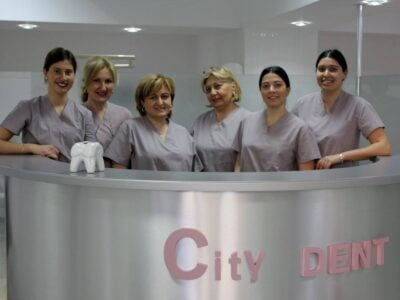

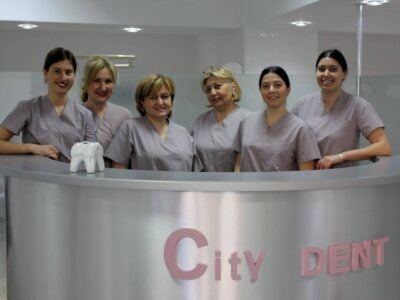
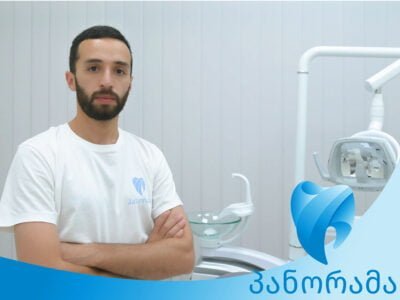


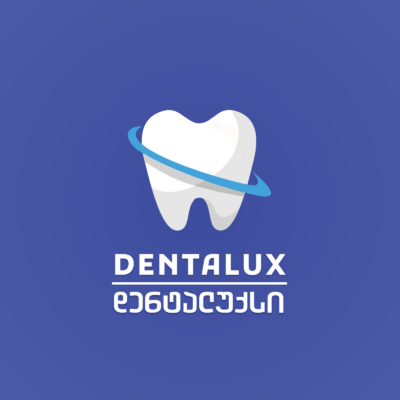

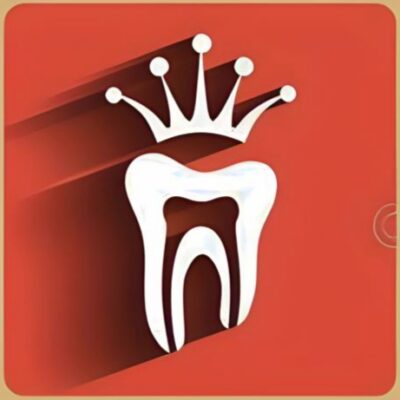
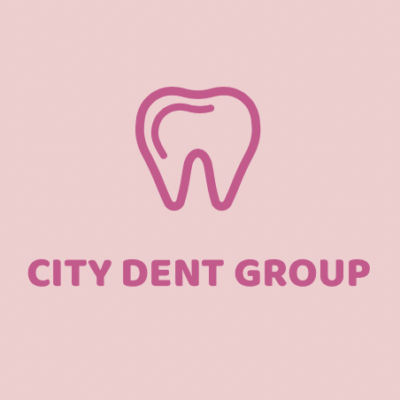

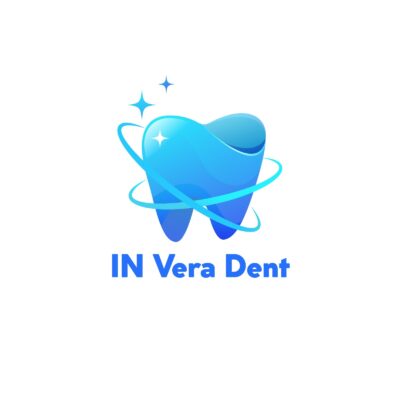
Comments
Your post offers a fresh perspective on the topic, backed by solid evidence. It’s thought-provoking and insightful.